Stephanie Jull, PhD
VP Programs, Training & Community Engagement, Canucks Autism Network
Filmed October 2020 – edited into 11 parts; total 145 minutes
Parents often assume that the difficulties they face in helping their children develop healthy daily routines are a part of their child’s autism and must be endured. This presentation provides parents and caregivers an overview of Positive Behavior Support (PBS) with the goal of supporting them to be proactive in helping neurodiverse children to be safely included in home, school and community activities. Core features of PBS include the application of behavioral science (ABA), the use of practical strategies to promote desired behavior, and a focus on improving the quality of life for the individual and their family.
A goal of this presentation is to increase parental awareness of good PBS service, so they can find a behavior consultant to support them in using positive strategies to address essential functional skills, including toileting, sleep and mealtimes. Importantly, parents will learn about positive strategies they can begin using immediately with young children to lessen the child’s reliance on destructive or self-injurious behaviors to communicate their distress. Parents of older children will better understand the challenges their children are experiencing and how to identify skilled support to provide the young person with positive ways of having their needs met while being fully included in their community.
Learning Outcomes
At the end of this workshop, participants will be able to:
Presentation Handout (40 Pages)
Brenda Fossett is an inspired teacher who is widely admired for her ability to convey complex concepts to those who work with children and adults with diverse needs, whether they are educational professionals or parents. Dr. Fossett has been on faculty in the Applied Behavior Analysis – Autism Department at Capilano University since 2013. She is a certified teacher of the deaf and a Board Certified Behavior Analyst. Dr. Fossett has extensive clinical experience providing behavioral and educational consultative services to children with ASD, deafness, and other developmental conditions in home, school, and community settings. Her scholarly and clinical interests include: applied behavior analysis, the implementation of positive behavior support in home and school settings, and educational interventions for deaf children with developmental disabilities.
Caring for children is frequently exhausting. Parenting children with diverse needs is even more demanding of families, compounded by the need to navigate and advocate across systems. Driven by love, these families are at high-risk of neglecting themselves and developing compassion fatigue. In this 13-part workshop we begin by exploring the “costs of caring” and its potential physical and emotional toll. Then we consider research supported strategies that can empower families and build their resistance to ward off compassion fatigue. Systems supports, self-care, and mindful self-compassion are featured.
Georgina has a doctoral degree in educational and counselling psychology from the University of British Columbia. She is the Principal of the Provincial Outreach Program for Autism and Related Disorders (POPARD) and is an adjunct faculty member at UBC. Georgina has over 20 years of clinical experience supporting both adults and children and is committed to supporting caregivers who are at risk for compassion fatigue.
Georgina has had training, supervision and experience and is considered a qualified teacher in several evidence-based mindfulness-based interventions including Mindfulness-Based Cognitive Therapy (MBCT; Oxford University Mindfulness Centre) and Mindful Self-Compassion (MSC, Center for Mindful Self-Compassion). Georgina’s work with families who have children with ASD is informed both by her professional qualifications as well as her lived experience as a parent of two boys, one with ASD.
Visit Dr. Georgina Robinson’s site Mindful Self-Compassion for Life.
This one-day informal gathering was held to discuss how Indigenous communities can be better served by meaningful research into the needs of their children affected by developmental disabilities in British Columbia. The presentations featured research projects that have been developed in partnership with Indigenous communities. The benefits of collaborative partnerships, in the context of chronically under-resourced Indigenous programs, are discussed as a necessary step in the process of genuine reconciliation. Key research findings are presented.
Resources from this presentation are available to view at the end of this page. Skip to resources.
The day was opened by Shane Pointe, a respected Musqueam Elder who spoke about the concept of Nutsamaht – ‘we are one’.
This session highlights a research relationship built on the need to generate and share knowledge about how Aboriginal Infant Development Programs (AIDP) support the health and well-being of Indigenous families and young children in BC. Research by “outsiders” in First Nations communities has long been a concern. Presenters Diana Elliott (AIDP Provincial Advisor) and Alison Gerlach (University of Victoria) explain how their partnership emerged through a shared understanding of the importance of relationship building and cultural safety in the research process, demonstrating the benefits of a ‘two-eye seeing’ approach.
Download the Research Summary report for the AIDP of BC (pdf)
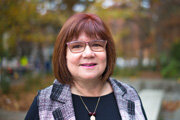
Diana Elliott is Coast Salish from Cowichan Tribes and Nuu Chah Nulth from Hupacasath First Nation. Diana values the teachings of her Elders and incorporates these into her daily work as the Provincial Advisor for the Aboriginal Infant Development Programs which now has 52 sites across B.C. Working from the philosophy that each child is a gift from the Creator, Diana appreciates the importance of enriching early and lifelong learning for children and support for parents and families.
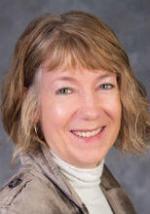
Nzen’man’ Child and Family Development Centre and Simon Fraser University (SFU) conducted a research project called ‘Bridging the Cultural Gap Through Collaborative Dialogue’. The intent was explore the inequalities and barriers faced by Indigenous families in the Nlaka’pamux Nation when accessing diagnostic and support services for their child/youth with autism. The Project Team heard from families and service providers about their experiences in supporting a child/youth with autism, what their hopes and dreams are for their children and how we can work together as a community to better support children and youth with autism. As part of the project we organized training on early identification and intervention in ASD and sought input from Nzen’man’ service providers on the cultural sensitivity and potential adaptation of these tools.

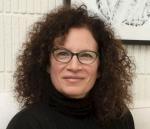
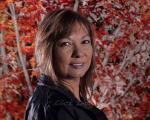
View the slides for this presentation (PDF)
The Human Early Learning Partnership (HELP) strives to engage in First Nations, Métis and Inuit research, data collection, and reporting in a culturally-responsive and safe manner that acknowledges the history, language and culture of First Nations, Métis and Inuit children and their families. HELP established an Aboriginal Steering Committee (ASC) in 2003. This presentation will cover some of the history of this important relationship between the ASC and HELP faculty, staff and partners which has brought great value to HELP’s work.
As one of the ASC’s founding members, Diana Elliott will share how she learned about HELP in her own community, beginning in 1998. She will highlight her own interest in HELP and how research partnerships between Aboriginal and non-Aboriginal people and organizations are important, especially as we support and encourage Indigenous people to conduct research. Diana’s presentation will explore how we support Indigenous people to see research as a useful and positive thing.

Ages & Stages Questionnaires – Cultural Adaptations Guidelines for Aboriginal Communities
The STAT™ (Screening Tool for Autism in Toddlers & Young Children)
This is not a guide to Indigenous research partnerships – Karen Adams, Shannon Faulkhead
Autism Videos @ ACT – 60 educational videos for parents and professionals
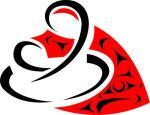
Aboriginal Infant Development Program
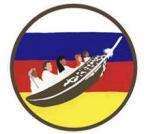
Aboriginal Supported Child Development
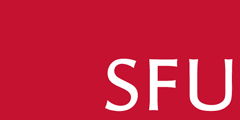
Simon Fraser University

Dwyer Tax Law